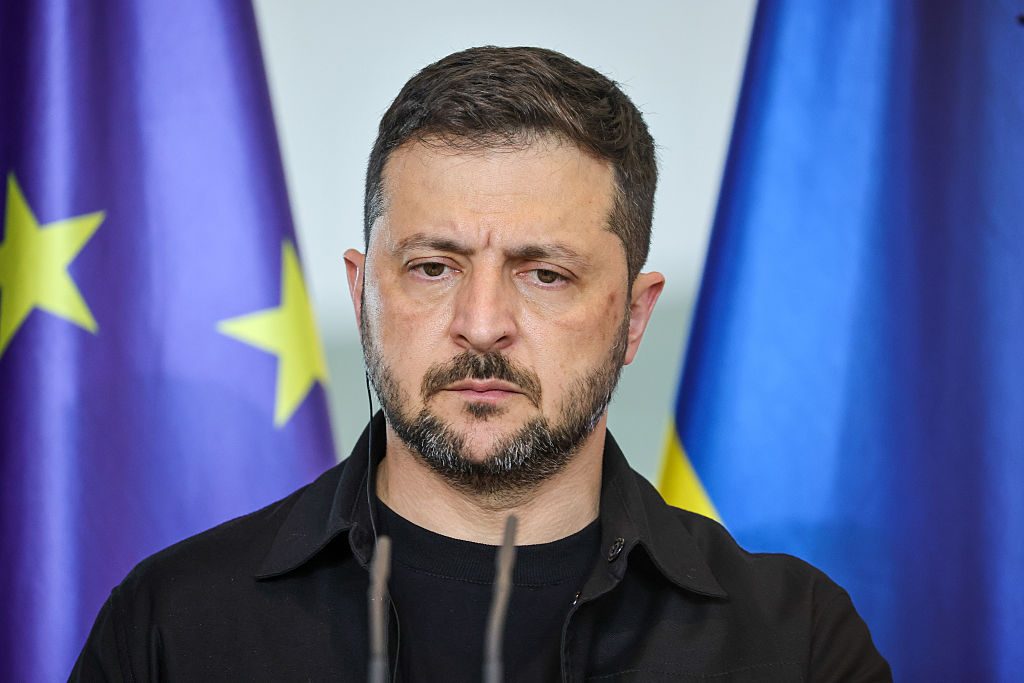It has become a hallmark of this war that, whenever America turns away from him, Volodymyr Zelensky seeks succor from his friends in Europe. Last week’s peace plan drafted by the US and Russia is no exception. Following Moscow’s leak of the uncompromising proposals, including cutting Ukraine’s military and forcing it to withdraw from territory in Donetsk, Zelensky has pressed European capitals to resist the terms and steer Washington towards another path. Now, those efforts are bearing fruit: a rival European plan and Geneva meetings with US and Ukrainian officials.
Donald Trump’s statement that his proposal was “not my final offer” may have initially augured success for Europe, as would Keir Starmer’s claim of a “constructive” phone call with the US President. Yet the underlying circumstances are hardly propitious. However warm Europe’s words, they are likely to fall on deaf ears. Trump’s attitude towards Kyiv has visibly hardened, and yesterday he was railing against Ukraine’s leadership for showing him “zero gratitude”. By contrast, he remains willing to listen to Moscow: the US has held secret bilateral meetings and appears content to work through Russia’s wish list.
Continental leaders should feel concerned knowing that months of flattering Trump in a bid to persuade him on Ukraine have come to naught. He has not moved beyond the rhetoric of February’s Oval Office showdown, reiterating on Friday that Zelensky does not have the “cards”. One European official told the Financial Times that they are now “back to square one”, noting that Europe once again fears Washington may use the threat of cutting off support to push Zelensky towards terms amounting to capitulation.
Yet Europe is hardly in the same position: it is significantly poorer than it was at the start of the year. In an effort to placate Trump and secure a place in any peace talks, continental leaders have agreed to buy more American weaponry, offered a state visit, and pledged higher defense spending.
Despite these gestures, the White House still views Europe as peripheral, with EU chief diplomat Kaja Kallas admitting that Europe was excluded from negotiations between Washington and Moscow. That exclusion underlines the failure of a strategy built on praise and compliance. Indeed, Europe has paid a high price without buying meaningful influence. What, at this point, can it offer Trump that would earn his respect? Its position is weakened further by leaders unwilling to risk criticizing the US President.
Then there are the problems with the terms Europe is proposing. Their document is fair, balanced and yet entirely doomed. It crosses several of Russia’s repeatedly stated red lines, from the presence of Nato troops in Ukraine, even if not formally representing the Alliance, to leaving the door open to Kyiv’s eventual Nato membership.
It is also unrealistic to expect Moscow to agree to an unconditional ceasefire before territorial negotiations. Russia knows that Ukraine would use such a pause to regroup, and could then delay or resist difficult talks over ceding land. Besides, having seen that they can persuade the Americans to accept their more stringent demands, the Russians will see no reason to settle for anything less in future.
The White House’s rapprochement with the Kremlin sends an unmistakable message for Europe: for all its efforts to secure a seat at the negotiating table, it has not even been let into the room. Geneva is a placating exercise, at which Europe may be heard but will not be listened to. Unsurprisingly, continental leaders are already downgrading expectations about their proposal, with Merz calling it a “first step” that “falls short of a complete solution” and European officials amending Washington’s proposals instead of pushing their own.
Trump seems to have shown some flexibility on his demand that Zelensky ink a deal by Thanksgiving. Yet, as the Ukrainian leader sees how impotent his friends in Europe are, that is perhaps the only thing for which he has to be thanks.











Join the discussion
Join like minded readers that support our journalism by becoming a paid subscriber
To join the discussion in the comments, become a paid subscriber.
Join like minded readers that support our journalism, read unlimited articles and enjoy other subscriber-only benefits.
Subscribe